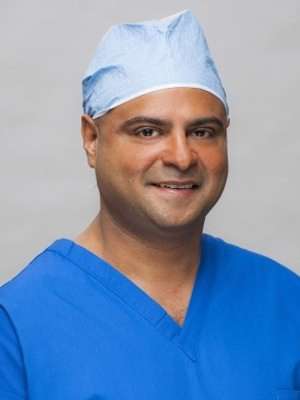The guidelines provided by the New York State Workers Compensation Board offer fundamental recommendations for treating Major Depressive Disorder (MDD). These directives aim to assist mental health professionals in identifying appropriate therapeutic interventions within the context of comprehensive care.
Mental health professionals with expertise in treating Major Depressive Disorder (MDD) can rely on the guidance outlined by the Workers Compensation Board to make well-informed decisions about the most suitable treatment options for their clients.
It is important to stress that these guidelines are not intended to replace clinical judgment or professional expertise. The treatment recommendations for Major Depressive Disorder (MDD) should be tailored to each individual patient and determined through collaboration between the mental health professional and the client.
Psychological Interventions
Cognitive Behavioral Therapy (CBT)
Recommended:
- CBT is recommended for treating patients with depressive disorders.
Dosage/Frequency/Duration:
- A 12 to 16-week course of weekly individual CBT is advised.
Acceptance and Commitment Therapy (ACT)
Recommended:
- ACT is recommended for treating patients with depressive disorders.
Rationale:
- Key to these interventions is accepting emotional pain rather than avoiding it, which is believed to reduce affective symptom severity.
Behavioral Therapy/Behavioral Activation (BT/BA)
Recommended:
- BT, a class of psychotherapy interventions, teaches patients to increase rewarding activities to treat DDD.
- BA, a specific version of BT, targets the links between avoidant behavior and depression, expanding BT’s treatment component.
Interpersonal Psychotherapy (IPT)
Recommended:
- IPT, derived from attachment theory, focuses on improving interpersonal functioning and exploring relationship-based difficulties in treating DDD.
Rationale:
- IPT addresses interpersonal loss, role conflict, role change, and interpersonal skills to enhance emotional well-being.
Mindfulness-Based Cognitive Therapy (MBCT)
Recommended:
- MBCT, integrating traditional CBT with mindfulness-based skills, is recommended for patients with depressive symptoms.
Rationale:
- MBCT helps patients experience emotions without necessarily attempting to change them, emphasizing observation of thoughts rather than modifying them.
CBT/Antidepressant Combined Use
Recommended:
- Combined use of CBT and antidepressants is recommended for patients with moderately severe/severe or complicated depressive disorders.
Short-Term Psychodynamic Psychotherapy
Recommended:
- Short-term psychodynamic psychotherapy is recommended for patients with depressive disorders, often used alongside antidepressants.
Indications:
- It may be used as a first-line treatment and is generally adjunctive to medications for severe depressive disorders.
Frequency/Dose/Duration:
- Initiate with eight sessions and consider additional sessions based on functional improvement.
Medications
Antidepressants
Recommended:
- Antidepressants are recommended for treating patients with depressive disorders.
Indications:
- Prescribed for depressive disorders where medication is clinically indicated, either alone or in combination with other treatments like CBT and psychotherapy.
Classes:
- There are several classes of antidepressant medications, including SSRIs, SNRIs, TCAs, MAOIs, and atypical antidepressants.
Selection:
- The choice of antidepressant depends on factors such as concurrent symptoms (e.g., sleep disturbance), potential adverse effects, prior experiences with medication, and co-existing psychiatric or medical conditions.
Frequency/Dose/Duration:
- Providers should ensure appropriate dose titration and allow for an adequate trial period (at least four to six weeks) before considering discontinuation due to treatment failure.
- Patients not responding to initial pharmacotherapy or psychotherapy should be reassessed for possible diagnostic errors or co-occurring conditions before adjusting treatment to achieve remission.
Discontinuation:
- Antidepressant discontinuation should be done gradually to avoid withdrawal symptoms or relapse.
- Patients achieving remission should continue medication for at least 6 months after symptom remission, with some patients needing long-term antidepressant use.
Fluvoxamine
Not Recommended:
- Fluvoxamine is not recommended for treating depressive disorders as it is not FDA-approved for this indication.
Antipsychotics
Recommended:
- Antipsychotics are recommended for augmenting antidepressants in treating Major Depressive Disorder (MDD).
Indications:
- Second-generation antipsychotics should be considered in select patients with psychosis, particularly those with severe symptoms such as serious delusions, hallucinations, confusion, catatonic behavior, extreme negativism, or mutism.
Electroconvulsive Therapy (ECT)
Recommended:
- ECT is recommended for patients with treatment-resistant Major Depressive Disorder (MDD) and any of the following conditions:
Indications:
- Catatonia
- Psychotic depression
- Severe suicidality
- History of a positive response to ECT
- Need for rapid, definitive treatment response on medical or psychiatric grounds
- Risks of other treatments outweigh risks of ECT (e.g., co-occurring medical conditions)
- History of poor response to multiple antidepressants
- Intolerable side effects to all classes of antidepressant medications (e.g., seizures, hyponatremia, severe anxiety)
Frequency/Dose/Duration:
- Typically administered once and not repeated unless severe MDD recurs and remains treatment-resistant.
Adjunctive Therapies
Exercise
Recommended:
- Exercise is recommended for treating patients with depressive disorders.
Indications:
- Exercise can be used as adjunctive treatment alongside first-line therapies like CBT and/or medication.
Frequency/Dose/Duration:
- Aerobic exercise based on clinical assessment.
Rationale:
- Exercise can lead to improvements in depressive symptoms, enhanced physical function, and overall well-being.
Yoga
Recommended:
- Yoga is recommended for select patients experiencing depressive symptoms.
Indications:
- Yoga may be used as adjunctive treatment alongside first-line therapies like CBT and/or medication.
Rationale:
- Yoga practice can result in improvements in depressive symptoms, increased physical function, and overall well-being.
Acupuncture
Not Recommended:
- Acupuncture is not recommended for treating patients with depressive disorders.




